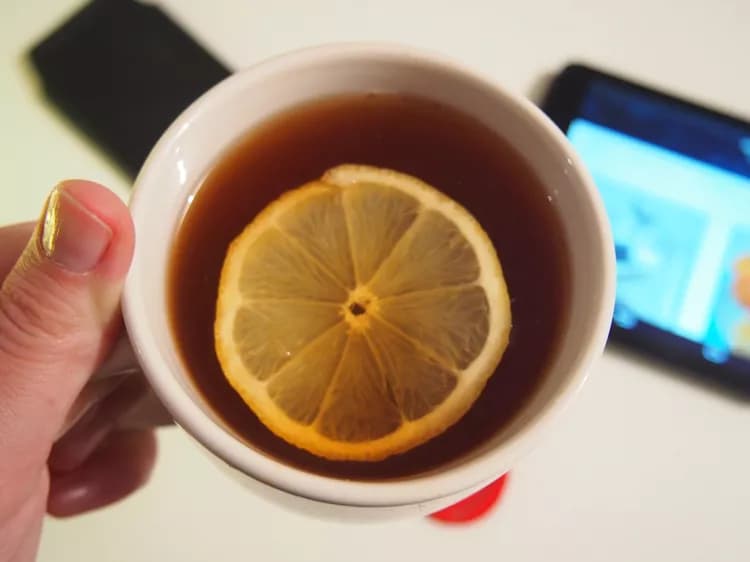
Piping Hot Drinks May Lead To Cancer Of The Esophagus
Drinking piping hot coffee, tea and the caffeine-infused beverage yerba mate probably causes cancer, the World Health Organization announced Wednesday.
Beverages surpassing 149 degrees Fahrenheit (65 degrees Celsius) may increase the risk of tumors in the esophagus, which resides in the chest area below the throat, according to USC's Mariana Stern and 22 other scientists from 10 countries. They met at the WHO's International Agency for Research on Cancer in Lyon, France, in May to determine if drinking coffee, mate or other very hot beverages causes cancer. Their results were published in the journal Lancet on June 15.
"Enjoy your coffee or mate, but make sure it's not very hot," said Stern, an associate professor of preventive medicine and urology at the Keck School of Medicine of USC. "There is physical evidence that very hot beverages can contribute to cell injury in the esophagus and thus contribute to cancer formation."
The group scoured more than 1,000 studies on over 20 different types of cancer. The scientists concluded drinking any beverage hotter than 149 degrees Fahrenheit is "probably carcinogenetic to humans," placing scalding hot drinks in the same category as DDT, frying food at high temperatures, consumption of red meat and the human papillomavirus.
According to the National Coffee Association, coffee waiting to be served should sit at 180-185 degrees Fahrenheit (82-85 degrees Celsius). That's around the temperature McDonald's restaurants served coffee before a well-known lawsuit prompted the fast food chain to sell coffee at a temperature of 10 degrees lower -- still far above what the researchers consider safe.
In the United States, the average coffee drinking temperature is around 140 degrees Fahrenheit (60 degrees Celsius). The temperature varies between 99-190 degrees Fahrenheit (37-88 degrees Celsius), Stern said.
"We were now able to evaluate more carefully the effect of mate itself from the effect of temperature, and we concluded that the observed links between mate drinking and cancer of the esophagus seem to be largely driven by drinking mate very hot," Stern said. "Similar associations are seen for other very hot beverages, like tea or coffee."
Stern and her colleagues noted that drinking yerba mate at very high temperatures -- between 150 and right below the boiling point of 212 degrees Fahrenheit (66-100 degrees Celsius) -- is common practice in certain countries in South America, including Argentina, Uruguay and Paraguay.
A cup of coffee a day may keep liver cancer away
The scientists downgraded a cup of joe from "possibly carcinogenic" and hot mate from "probably carcinogenic" to safe for consumption as long as neither are scalding hot.
In 1991, the WHO gave coffee that classification based on a much smaller database of studies. Now, the scientists highlighted some studies that associated coffee with cancer when the real culprit was probably tobacco smoking, which is highly correlated with heavy coffee drinking, according to the report.
Late last year, Stern participated in a WHO group that concluded consuming processed meat -- bacon, salami, sausages, hot dogs and deli meats -- causes cancer.
However, the news about coffee was not grim. The researchers estimate that a cup of coffee a day decreases the risk of liver cancer by 15 percent. In other words, the scientists are giving coffee lovers a free pass to drink as much coffee as their bladders can handle.
"For many cancer types, we found clear evidence that coffee is not carcinogenic," Stern said. "In fact, we found that coffee protects against some cancers such as liver and uterine endometrium cancer."
The WHO's International Agency for Research on Cancer (IARC), which celebrated its 50th anniversary last week, produces evidence-based science for global cancer control policies. One of the organization's key philosophies is most cancers are linked to environmental factors and thus are preventable.
The preventive medicine department at Keck Medicine of USC has contributed greatly to IARC initiatives and the intractable problem that is cancer. Other preventive medicine professors who have participated in the IARC's cancer monograph program include Thomas Mack; Anna Wu, co-leader of the Cancer Control Research Program at the USC Norris Comprehensive Cancer Center; and Jonathan Samet, director of the USC Institute for Global Health and distinguished professor and Flora L. Thornton chair of the preventive medicine department. Together these scientists have been involved since the 1980s and have shared their expertise in topics such as solar ultraviolet radiation, smoking, Chinese salted fish, tobacco smoke and involuntary smoking, and cell phone radiation.
The above post is reprinted from materials provided by University of Southern California. The original item was written by Zen Vuong. Note: Materials may be edited for content and length.
Disclaimer: DoveMed is not responsible for the adapted accuracy of news releases posted to DoveMed by contributing universities and institutions.
Related Articles
Test Your Knowledge
Asked by users
Related Centers
Related Specialties
Related Physicians
Related Procedures
Related Resources
Join DoveHubs
and connect with fellow professionals

0 Comments
Please log in to post a comment.